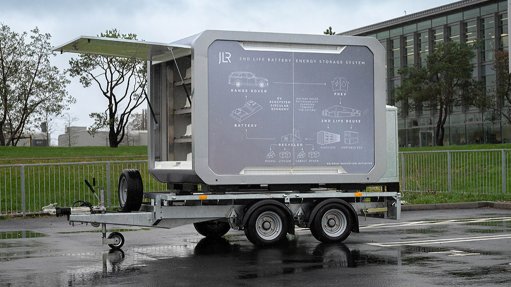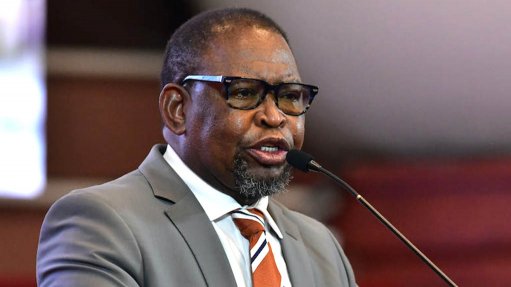Gibraltar – a major Brexit casualty?
On the south-western tip of Europe, on the Iberian Peninsula, at the entrance to the Mediterranean Sea, lies a British overseas territory (formerly known as a colony) that is all of 6.7 km2 in area. It even has a strait named after it.
The territory is call Gibraltar. If you view it from a distance, you will find that it possesses an imposing feature – a massive rock. The Rock of Gibraltar is a monolithic limestone promontory 426 m high, which, owing to its slope, is not ideal for residential development; its top part is a nature reserve. Mons Calpe, or Hollow Rock, as the Rock was known by the Romans, is riddled with man-made tunnels and caves, to the extent that there is a bigger road network inside the Rock than outside. It is a fascinating place, nonetheless.
Had Gibraltar processed a skull that was found in one of its caves – Gorham’s Cave – you would never have heard of the Neanderthal skull, which was found in Neanderthal, a valley near Mettmann, in Germany, the reason being that the Gibraltar skull predates the Neanderthal skull.
Gibraltar is arguably a territory of contradiction and deception. Take, for instance, the fact that it is frequently referred to as an island, which it might have been 150 years or so ago. It has the appearance of an island when viewed from afar, since it towers above its surroundings, which are barely higher than sea level. Gilbraltar adjoins Spain, with which it shares a border, or a frontier, as Gibraltarians prefer to call it.
But what makes Gibraltar truly fascinating is that it is also a territory of exception. The territory appeared on the Brexit ballot paper. There was a simple reason for it, and it was not that Gibraltar is a British overseas territory. It appeared on the ballot paper due to the fact that it is a member of the European Union (EU) in its own right. So, it is not only Britain – the UK – that is leaving the EU, but Gibraltar too.
The House of Lords’ EU Select Committee recently invited written submissions on its Gibraltar inquiry, which solicited a range of submissions. Having taken an interest in the economy, I offered a few personal insights, which could benefit South Africa as it works to refine its relations with the UK and the EU in a post-Brexit environment.
Gibraltar’s gross domestic product (GDP) per capita for 2015/16, according to the Chief Minister’s 2016 Budget address, is “forecast at $90 165, placing Gibraltar in fourth position” on the International Monetary Fund GDP per capita rankings. The UK is in twenty-eighth position. The Chief Minister observed that, for the 2015/16 financial year, “we have once again exceeded our estimate for the fourth consecutive year – we achieved a recurrent Budget surplus which is among the highest ever on record, at £38.8-million . . . [the] surplus of £38.8-million is declared after the deduction of £25-million to fund government companies”.
The Chief Minister’s Budget address does not include any further reference to government companies, as it only reports on cash transactions. To gain a full understanding of the economy of Gibraltar, you would need to familiarise yourself with its Budget, more specifically, the approved estimates of revenue and expenditure; government companies; and annual accounts, more specifically, the statement of aggregate arrears of revenue by subheads. (The approved estimates of revenue and expenditure include ‘government companies’, which are wholly owned, but this is not a complete list, as, for one, it does not include companies in which government holds a partial ownership.)
Even though Gibraltar continues to record Budget surpluses, reference was made in the 2016 Budget address to the fact that government has “secured £300-million in new institutional investment in Gibraltar on the strength of our enhanced and refurbished public housing stock [and] the £300-million investment has varying maturities of 15 to 30 years at fixed interest rates”.
Of the 117 revenue items (consolidated reve- nue fund: head and subhead) estimated for 2016/17, two account for 50.78% (£300-million) of total revenue, and three for 68.55% (£405-million) of total revenue. The revenue items in question are import duties (£150-million), income tax (£150-million) and company tax (£105-million).
This is quite indicative of how vulnerable and exposed the economy of Gibraltar will be should any of these taxes (import duties are also considered a tax) be negatively impacted on. The impact of a post-Brexit environment on these three revenue items should be seriously considered.
An important consideration would be imports, which are reported on in the Abstract of Statistics, the most current of which is the Abstract of Statistics 2014, which contains this note: “The source data for 2014 is incomplete and will be revised once all the declarations have been processed by HM Customs.” In addition, the statistics “[exclude] petroleum products”. The exclusion is quite significant. According to the statistics, imports into Gibraltar in 2014 amounted to £428.2-million, but, with the application of mirroring, they amounted to £8.5-billion. In other words, the published imports account for only 5.03% of the mirror statistics.
Of the 52 department expenditure items estimated for 2016/17, six account for 52.82% of total revenue, and 12 for 61.42%. With Gibraltar being a socialist economy, healthcare accounts for 19%, utilities 10.79% and education 8.84% – a collective 38.63%.
The contribution to government-owned companies, the £25-million mentioned earlier, accounts for 4.74% of total expenditure.
Gibraltar’s economy essentially comprises four sectors: financial services, including banking and insurance; gambling; tourism; and bunkering. A challenge facing the government of Gibraltar is to identify, establish and nurture additional sectors of the economy and to do so specifically for small and medium-sized businesses. This is particularly challenging, given the size of the economy and the scarcity within the economy.
As with any small economy, Gibraltar’s competitiveness is essentially attributable to the exclusion (exemption) that it has been able to negotiate, which has enhanced its economic appeal. To maintain, at least, what dispensation it currently has, Gibraltar needs to ensure the maintenance of such exception and exclusion.
A real challenge that Gibraltar faces in such endeavour is that it imposes an external cost in those countries with which it trades, an economic cost that, in future, might well be required to be internalised. The extent to which Gibraltar would be able to internalise such an external cost without impacting on its competitiveness would be telling.
Although Gibraltar is part of the EU, it is outside the Customs Union and Value-Added Tax (VAT) area and is exempt from the Common Agricultural Policy (CAP). Being outside the Customs Union, Gibraltar imposes customs duty (import duty) on certain imports, depending on their classification, but no excise duty, which is of significance in enhancing the competitiveness of cigarettes, tobacco products and liquor – the so-called sin products.
As a consequence of being outside the Customs Union, Gibraltar maintains a ‘hard’ border with Spain. This implies that you need a passport or an identity card to cross the border.
On present assessment, the risks of Brexit for Gibraltar easily outweigh the benefits, which is not difficult to understand, since Gibraltar is a small ‘island’ economy that is heavily dependent on the importation of expertise (services), goods (merchandise) and the ability to attract business location and investment in its economy.
With the triggering of Article 50 – the UK’s formal intention to leave the EU – expected to take place on March 9, one thing is for sure: life in Gibraltar is going to change forever. What will happen? Well, one can only speculate. But when you hear Brexit mentioned, spare a thought for the small community of 33 140 Gilbraltarians who will feel the impact.
Comments
Press Office
Announcements
What's On
Subscribe to improve your user experience...
Option 1 (equivalent of R125 a month):
Receive a weekly copy of Creamer Media's Engineering News & Mining Weekly magazine
(print copy for those in South Africa and e-magazine for those outside of South Africa)
Receive daily email newsletters
Access to full search results
Access archive of magazine back copies
Access to Projects in Progress
Access to ONE Research Report of your choice in PDF format
Option 2 (equivalent of R375 a month):
All benefits from Option 1
PLUS
Access to Creamer Media's Research Channel Africa for ALL Research Reports, in PDF format, on various industrial and mining sectors
including Electricity; Water; Energy Transition; Hydrogen; Roads, Rail and Ports; Coal; Gold; Platinum; Battery Metals; etc.
Already a subscriber?
Forgotten your password?
Receive weekly copy of Creamer Media's Engineering News & Mining Weekly magazine (print copy for those in South Africa and e-magazine for those outside of South Africa)
➕
Recieve daily email newsletters
➕
Access to full search results
➕
Access archive of magazine back copies
➕
Access to Projects in Progress
➕
Access to ONE Research Report of your choice in PDF format
RESEARCH CHANNEL AFRICA
R4500 (equivalent of R375 a month)
SUBSCRIBEAll benefits from Option 1
➕
Access to Creamer Media's Research Channel Africa for ALL Research Reports on various industrial and mining sectors, in PDF format, including on:
Electricity
➕
Water
➕
Energy Transition
➕
Hydrogen
➕
Roads, Rail and Ports
➕
Coal
➕
Gold
➕
Platinum
➕
Battery Metals
➕
etc.
Receive all benefits from Option 1 or Option 2 delivered to numerous people at your company
➕
Multiple User names and Passwords for simultaneous log-ins
➕
Intranet integration access to all in your organisation


















